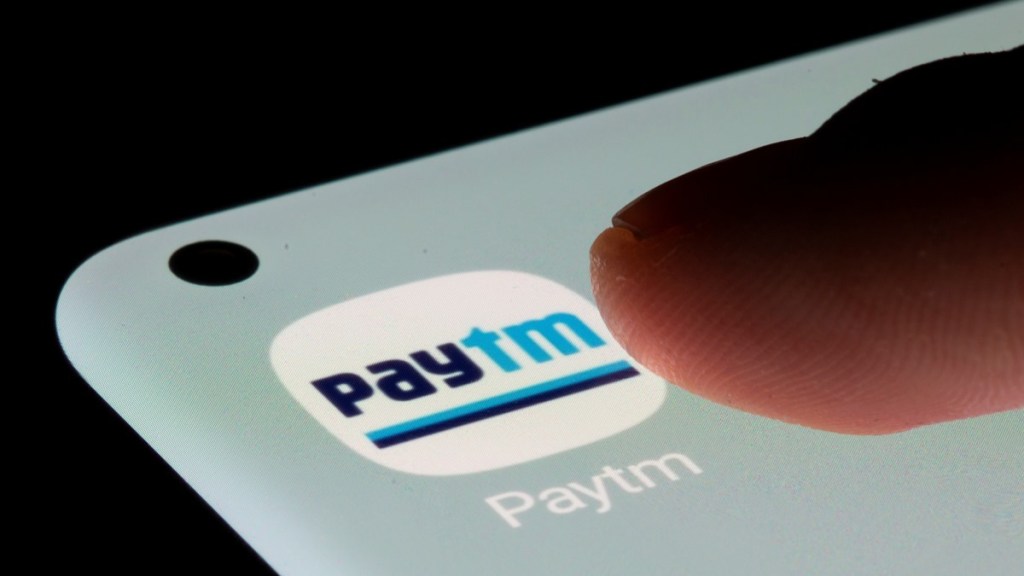The net loss of Paytm parent One97 Communications narrowed to Rs 222 crore in the October-December quarter, aided by growth in revenue. The company had posted a net loss of Rs 392 crore a year ago. Analysts had estimated the company would post a net loss of Rs 255 crore .
Revenue from operations grew 38% year-on-year(y-o-y) to Rs 2,850 crore in the quarter under review due to accelerated growth in gross merchandise value, higher device addition, and growth of financial services business.
The payments and financial services firm partly attributed the growth in revenue to festive seasons. Online sales for the festive season came in Q3, whereas they were largely in the July-September quarter in 2022, it said in the investor presentation. Contribution profit rose 45% y-o-y to Rs 1,520 crore in the third quarter.
Payments revenue rose 45% y-o-y to Rs 1,730 crore. Net payment margin rose 63% y-o-y to Rs 748 crore, thereby indicating an improvement in the company’s payment profitability.
Payment processing margin was in the range of 7-9 basis points (bps) due to an increase in gross merchandise value of non-unified payments interface instruments like equated monthly instalment and cards, and improvements in payment processing margin.
The company’s merchant payments volume or gross merchandise value grew 47% y-o-y to Rs 5.1 trillion. Merchant subscriptions, including devices rose to 10.6 million as on December 31 from 5.8 million a year ago.
“In Payments, the company’s multi-device led strategy will further strengthen acquiring leadership. It will also focus on new use cases like Credit on UPI, autopay etc. to lead monetisable incremental customer acquisition,” Paytm said in a press release.
The revenue from financial services and others grew 36% y-o-y to Rs 607 crore in the December quarter. Value of loans distributed rose 56% y-o-y to Rs 15,535 crore. Following Reserve Bank of India (RBI)’s move to increase risk weights on unsecured personal loans, the company announced that it is had decided to cut down on disbursing loans below Rs 50,000 and focus more on high ticket loan sizes.
In line with this strategy, the company has distributed Rs 490 crore of high-ticket loans in the quarter under review. Total number of unique borrowers who have taken a loan through its platform stood at 12.5 million.
“We will continue to calibrate Postpaid further in Q4 FY 2024 and beyond on the back of continued macro uncertainty and regulatory guidance for less than Rs 50,000 loans,” the company said in the investor presentation.
The company is working with two lending partners for high ticket loans. It expects to add at least three-to-four more by Q1FY25. Value of merchant loans distributed grew 96% y-o-y to Rs 3,579 crore.
Average ticket size rose to Rs 200,000 from Rs 150,000 a year ago. The value of personal loans distributed rose 52% y-o-y to Rs 4,460 crore. Average ticket size rose to Rs 168,000 in the December quarter from Rs 120,000 a year ago.
While the value of postpaid loans distributed grew 44% y-o-y, it fell 17% quarter-on-quarter(q-o-q) to Rs 7,496 crore as the company has slowed down the distribution of postpaid loans.
The company continues to monetize Paytm app traffic in its marketing services segment, which includes deals and gift vouchers, ticketing, advertising, and credit cards marketing. In the December quarter, marketing Services revenue grew by 22% y-o-y to Rs 514 crore.
Going ahead, Paytm expects its focus on artificial intelligence-led efficiency is set to further drive operating leverage. The company’s indirect expenses (as a % of revenues), has declined to 46% in the December quarter from 49% a year ago.
